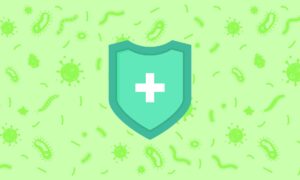For many families, whole foods have become a rare part of their regular diet. Chemically processed food is cheap and easy to buy, yet it can harm your body and life. However, regularly eating these processed foods can seriously impact your health. Here are a few reasons to consider how you eat and try to eat better.
Processed Foods: Sugar or High-Fructose Corn Syrup
Two of the most prevalent sweeteners are sugar and high-fructose corn syrup (HFCS). Although they are equally calorically dense and sweet, there are significant distinctions between the two in their composition.
Glucose and fructose are the components that make up sugar, a type of simple carbohydrate. Your body may be broken down corn syrup into its parts–glucose, fructose, and other sugars. High-fructose corn syrup is one of the corn syrup varieties.
There are a lot of processed foods and snacks out there, and a lot of them contain a lot of sugar or high-fructose corn syrup, which gives them a sweet flavor that is hard to resist. However, eating a diet that includes an excessive amount of sugar is detrimental to one’s health.
Sugars are a source of what is referred to as “empty calories.” This means that, aside from providing your body with energy, they don’t offer anything else that your body requires. On the other hand, the effects of consuming an excessive amount of sugar might be far more severe. Consuming excessive sweets, for instance, might lead to insulin resistance, high cholesterol, and elevated triglyceride levels. Diabetes, heart disease, and cancer are all conditions linked to these factors.
There are a variety of other sweeteners that you can use in place of sugar or high-fructose corn syrup in various meals and beverages. These alternatives are as follows:
- Agave nectar
- Maple syrup
- Honey
- Dark granulated sugar
- Coconut sugar
- Maltose
- Dextrose
- Sucrose
Every one of these options possesses one-of-a-kind qualities that you can put to use in a variety of different contexts. For instance, you can utilize agave nectar in producing sweets and beverages, while maple syrup can create flavor enhancers. In addition, some of these options may also have potential advantages for one’s health, such as the high level of antioxidants that honey possesses. Therefore, it is vital to grasp the options available and adjust them to the recipe’s needs.
Processed Foods: Refined Carbohydrates
Carbohydrates subjected to some processing are referred to as refined. It’s possible that some of their natural sugars have been eliminated or that they’ve been mixed with other ingredients to alter their flavor or make them easier to digest. Either of these things might have happened.
There are a few distinct kinds of refined carbs, and each one has a unique set of advantages and disadvantages that are specific to it.
Refined carbohydrates are typically found in foods such as white bread, white rice, and other refined grains. These foods are simple to digest; however, their calories and carbohydrates may be relatively large. In addition, increased blood sugar and insulin levels are caused by consumption of carbohydrates of this type.
Whether you try to avoid carbohydrates or actively seek them out, it is essential to focus on getting your carbohydrates from whole foods rather than processed meals.
Processed Foods: Trans Fats
Some fried foods, snack foods, and margarine contain trans fat. Trans fat is unhealthy and should be avoided. Additionally, it can be found as an ingredient in a variety of baked foods as well as crackers. It has been demonstrated that consumption of trans fat raises LDL (“bad”) cholesterol levels in the blood, increasing the chance of developing cardiovascular disease.
Inflammation can spread throughout the body when trans fat is present, and low levels of “good” HDL cholesterol can result. This may make it simpler for plaque to build up in your arteries, increasing the likelihood of you suffering from cardiovascular disease and stroke.
Trans fat can hurt the function of your immune system, which in turn raises your risk of acquiring type 2 diabetes. This risk is increased in addition to the threat that trans fat poses for developing cardiovascular disease and stroke. Because of their wide range of applications in culinary practice, vegetable oils can be difficult to exclude from one’s diet. Instead, it would be best to cook using oils higher in healthy fats, such as olive, coconut, or avocado oil.
Low Levels of Fiber
Consuming a diet that is deficient in fiber can be problematic.
Fiber is a carbohydrate that is found in a wide variety of foods, including fruits, vegetables, grains, and legumes. It makes you feel fuller for longer, encourages healthy digestion and bowel movements, and even helps to reduce the amount of cholesterol in your body.
Your body may be unable to extract the necessary nutrients from the food you eat if you do not consume a diet with adequate fiber. This process may result in gastrointestinal issues, including constipation, diarrhea, or bloating. You could also experience hunger more frequently, even though eating foods high in fiber helps you feel fuller for longer and thus eat fewer snacks between meals.
In conclusion
Avoiding foods that have been processed might be challenging. Not only is it a widespread practice in grocery stores, but the vast majority of fast-food restaurants also use processed goods while preparing meals for their customers.
If you reduce the number of processed foods you eat, you will have to spend more money and give up the luxury of being able to pick up a meal whenever and wherever you like while you are traveling. However, in the long run, your body will be grateful to you for doing so.
Updated: 11-28-2022









